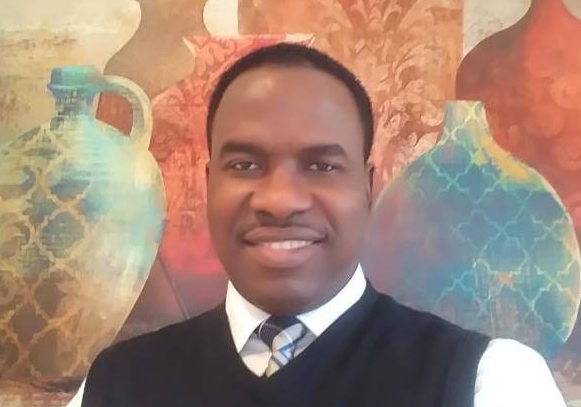[COVID-19\TPS]
America’s Voice: Rony Ponthieux, a Haitian nurse who despite taking care of three coronavirus patients every day, is under threat of possible deportation from the Trump administration and separation from his wife and two children.
Facebook
Haitian nurse Rony Ponthieux, a frontline essential worker in the COVID-19 fight, faces deportation.
NBC 6’s Nathalia Ortiz is out with an article covering the essential work Temporary Protected Status (TPS) holders are doing on the frontlines of the Coronavirus pandemic. Ortiz highlights the work of Rony Ponthieux, a Haitian nurse who despite taking care of three coronavirus patients every day, is under threat of possible deportation from the Trump administration and separation from his wife and two children.
For Ponthieux, his work as a nurse resembles a soldier at war, fighting against the enemy that is the virus. Ponthieux’s call for the government to let him stay is one echoed across the country by TPS holders and their families who are integral members of our communities and economy.
Ortiz’s article is excerpted here:
Of all the ironies COVID-19 has unabashedly thrust in our faces — such as food delivery workers being higher on the ladder of essential employees vis-a-vis corporate executives, or some elderly folks (a coronavirus-vulnerable group) being the least willing to stay home — few are as stark as that of a health care employee working in the respiratory unit of a public hospital during a pandemic being on the verge of being forced to return to his home country.
Rony Ponthieux is a registered nurse assigned to what has essentially been converted to Jackson Memorial Hospital’s COVID-19 battleground. He is also a Haitian immigrant who arrived in the U.S. 20 years ago, this week, with his wife. Ponthieux was granted Temporary Protected Status (TPS) by immigration officials when the earthquake left Haiti in shambles a decade ago. Since then, he and his wife have had two children, put themselves through nursing school and bought a house in Miami-Dade, but his immigration status has stayed true to its name: temporary. After two decades, this nurse who describes his job nowadays as “meeting death” is also tormented by the possibility of being removed from the place he and his U.S.-born children call home. It’s also where he cares for three coronavirus-infected patients on an average day who need continuous monitoring.
“I would like to ask again the administration to help us save those people; to help us stay in this country with peace of mind, so we can save the most people possible,” Ponthieux said.
After courts temporarily blocked President Donald Trump’s decision to eliminate TPS in November 2017, a new January 2 deadline was set for beneficiaries from Haiti. With the date less than a year away, and after a string of temporary extensions, Ponthieux and about 300,000 nationwide TPS recipients, from countries such as Nicaragua, El Salvador, Honduras and Haiti, are asking for their immigration status to be permanently resolved. Most beneficiaries, according to Melissa Taveras of Florida Immigrant Coalition, have lived in the United States about 20 years.
… Temporary Protected Status is given by the Department of Homeland Security to people of designated countries who live in the United States. Their countries of origin are usually affected by extreme violence or natural disasters. The immigration program allows people to live and work in the United States for limited times. According to the Center for American Progress, there are 17,900 TPS recipients in essential positions in Florida alone, and 2,900 of them work in the medical industry.
“It’s so critical that we remain with this population that is going to help mitigate the effects of this virus, and we stand with them and ensure that they’re protected and not fearful of being deported,” Taveras said.
“We are in a war. And the enemy is not another country, it is the virus — the coronavirus. And the soldiers of this virus are not the U.S. Army soldiers. They are the healthcare providers. And I’m one of them. I would like to ask the government to keep me here,” Ponthieux said.
Follow Frank Sharry and America’s Voice Education Fund on Twitter: @FrankSharry and @AmericasVoice America’s Voice Education Fund – Harnessing the power of American voices and American values to win common sense immigration reform www.americasvoice.org





